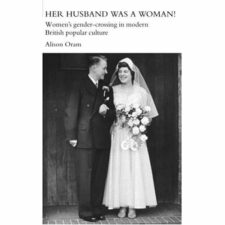The Women’s Social and Political Union (WSPU), founded by Mrs Pankhurst in Manchester in 1903 with the aim of winning votes for women, became a national movement which gave birth to a new type of woman: the suffragette. She made speeches in the street, fought her way through police lines, smashed windows, heckled MPs, set fire to buildings, and went to prison where she endured the torture of forcible feeding. She was everywhere: from Plymouth to Edinburgh, Aberystwyth to Yarmouth – and she was here in my home town, Bristol.
We know a great deal about the leaders of the national women’s suffrage movement, both militant and non-militant – the Pankhursts and Pethick-Lawrences of the WSPU; Mrs Wolstenholme Elmy and Lydia Becker of the National Union of Women’s Suffrage Societies (NUWSS). We also know a lot about the main thrust of the campaign at the centre of political power in London. Some of the best-known images of the women who fought for the vote are scenes of brutality and disorder outside the House of Commons and Buckingham Palace, or of huge rallies of beautifully dressed women carrying gorgeous banners to Hyde Park.
But we also know that hundreds of women flocked from the provinces to join those rallies, so many in fact that special trains had to be provided to transport them. We know that the WSPU headquarters in London depended on volunteer-run shops and offices up and down the country for its funds. And we know that suffragettes and suffragists travelled the land making speeches, opposing government candidates in local elections, setting fire to buildings, cutting telegraph wires, pouring acid into letter boxes. Wherever they went they relied on local people.
That’s what my Bristol Suffragette Project is about: local women and local events. In Bristol these were sometimes of national significance. It was in Colston Hall on 16 February 1912 that Charles Henry Hobhouse, Liberal MP for East Bristol, made his “In the case of the Suffrage demand there has not been the kind of popular sentimental uprising which accounted for Nottingham Castle in 1832, or the Hyde Park railings in 1867. There has been no great ebullition of popular feeling” speech which Mrs Pankhurst was to cite as a direct challenge to intensify militancy across the country. But there are other stories to be told, the stories of the women who worked for the cause in the south west, the women who sold the newspapers, staffed the shops, ran the raffles and jumble sales, and in many cases also carried out militant acts.
There are so many tantalising references to them! Who, for example, was “the lady” who challenged Hobhouse about the possibility of a votes-for-women referendum on that evening in Colston Hall? Who was the old woman known as “Mother Earth” who used to read to the suffragettes as they sunbathed on Clifton Down? Who was the man who threw a dead kitten at Augustine Birrell at a North Bristol Liberal meeting in 1913? And who set fire to the University of Bristol’s Sports Pavilion on 23 October 1913 which resulted in two retaliatory attacks on the Bristol WSPU shop by students?
Perhaps I’ll never know! But I’m fascinated by these people who briefly rise from the obscurity of history only to sink back again. What were their motives? What were their stories? That’s why I’ve set up the Bristol Suffragette Project website. I want to invite people who have information to share, stories to tell, books or websites to recommend, perhaps even that holy grail – a cache of papers in the attic – to get in touch. Although my particular focus is on Bristol (and will also include Bath and the West Country), it would be wonderful to hear from other people who are doing similar local research, perhaps to share advice on resources, or to tell stories from their regions. As we know, the campaigners moved around and there are often connections to be made.
So far the website includes a section on research sources, a booklist, and a Women’s Suffrage Timeline which anyone who is just starting their research might like to download. I’m also featuring different people, places and events with Bristol, Bath or West Country connections in a “Spotlight on…” section, which would be an ideal place for anyone who had a suffragette, suffragist or even an anti- in their family whose story they’d like to tell. If anyone wants to suggest or provide other resources or articles which may be useful, I’ll do my best to incorporate them.
http://www.lucienneboyce.com/suffragettes.html
Lucienne Boyce is a novelist and local historian who is currently working on a short history of the suffrage campaign in Bristol, and planning a book about the women and men with a Bristol, Bath or West Country connection who worked for – or against! – the female franchise.

1 thought on “Bristol Suffragette Project”
Comments are closed.